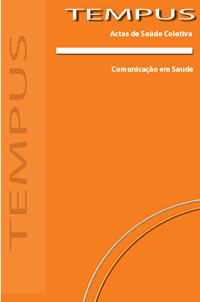Abstract
This paper examines the media and journalistic culture in health communication by focusing more specifically on the ways journalists deal with health in the media. The analysis is based on several studies carried out with journalists and various population groups in Canada and Brazil. This paper demonstrates that there is a certain consistency in the journalistic treatment of healthcare and that this treatment is not always to the benefit of society. The profession of journalism is changing rapidly: the rapid flow of information, the abundant supply of information, the pace of news production, the place of citizens’ demands are some of the phenomena that have transformed the production of information carried out by journalists. Besides, people tend to resort more to media than to healthcare professionals to obtain information about risks and are therefore exposed to social norms regarding health. Considering the influence of media in health communication, this paper questions the media and journalistic culture through an ethical lens by addressing the journalist’s responsibility regarding media coverage of health, production of the news (source, treatment and tone), convergence and their health effect on the population. As main findings, we point out that journalism needs to invest in more effective health communication, which is committed to the well-being of citizens, through treatment and detailing of information that allow the support of the decision-making process by the population.

